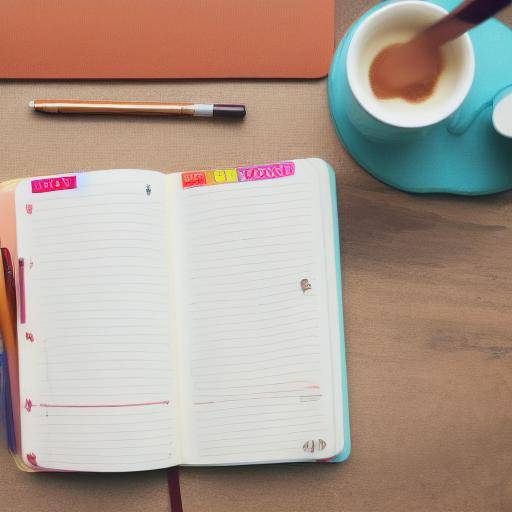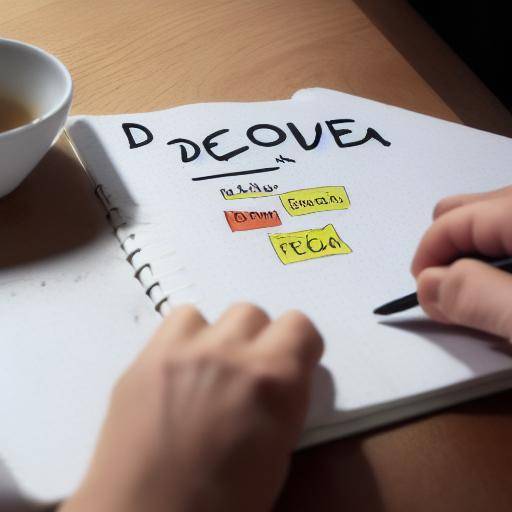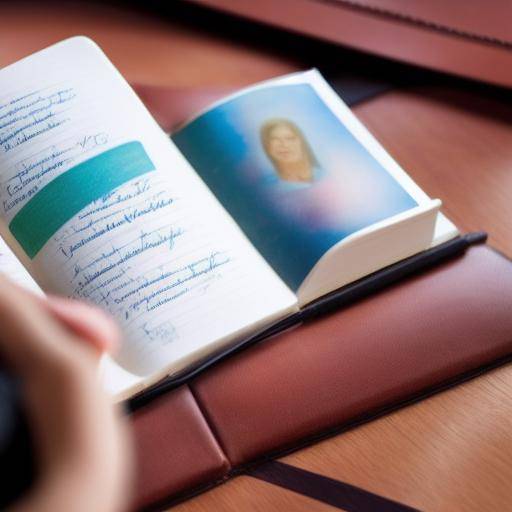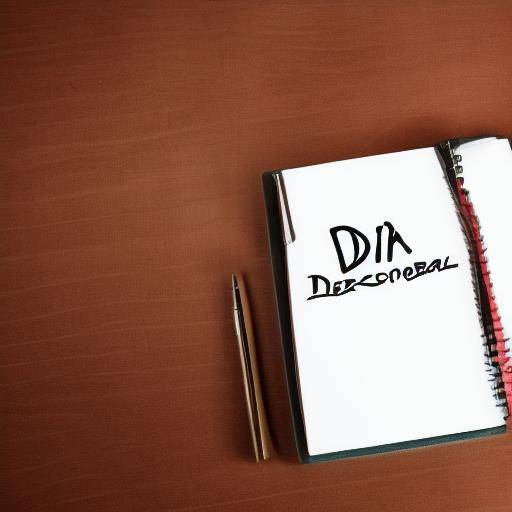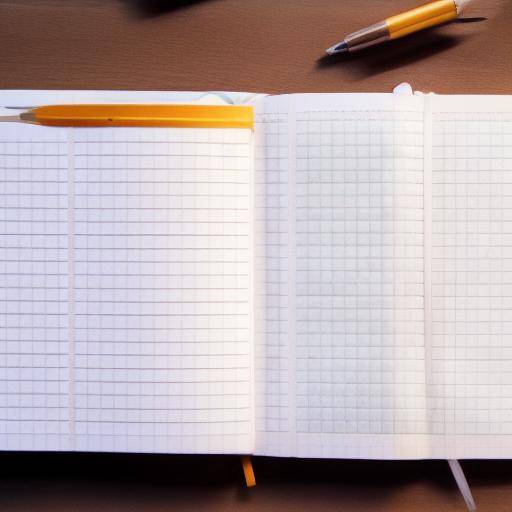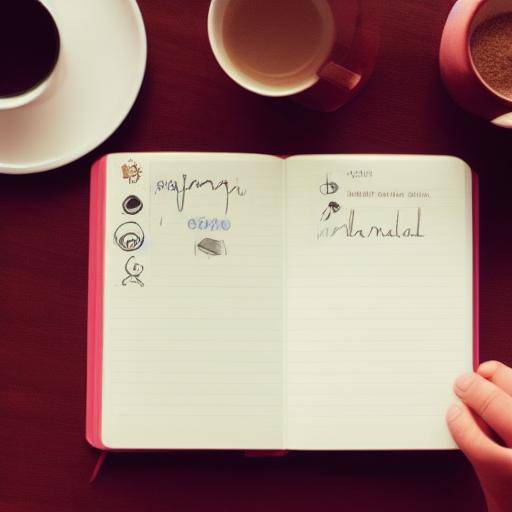
The importance of personal relationships in the life of each individual is unquestionable. The connections we establish with friends, family, coworkers and couples significantly impact our emotional well-being. However, the care and strengthening of these relationships is not always a simple task. Sometimes finding the balance between effective communication, empathy and understanding becomes a challenge.
It is in this context that the personal journal, or journaling, acquires relevance. The benefits of carrying a diary go beyond the mere expression of thoughts and emotions. In fact, the act of writing regularly in a journal can have a significant impact on the way we relate to others. Throughout this article, we will explore how the practice of the personal journal can improve personal relationships, promote emotional well-being and provide greater understanding of ourselves and those around us.
The History and Evolution of the Personal Journal
The act of carrying a diary has deep roots in human history. From ancient civilizations to the digital era, people have used writing as a means to reflect, process emotions and document their lives. The personal journal has witnessed countless historical moments, providing a unique vision of the lives and relationships of their authors over the centuries.
In exploring the evolution of the personal journal, it is essential to understand its impact on personal relationships over time. Throughout history, many great leaders, intellectuals and public figures have kept journals that offer an intimate perspective of their interactions with others and how these relationships have influenced their lives and decisions.
Benefits of the Personal Journal for Personal Relations
The personal journal offers a number of tangible benefits for the development and strengthening of personal relationships. Some of the highlights include:
Self-knowledge and empathy
The process of reflecting on our experiences, emotions and thoughts through the personal journal allows us to develop greater self-knowledge. This self-knowledge in turn allows us to better understand the motivations and behaviors of others, thus promoting empathy and understanding in our interpersonal relationships.
Effective communication
The personal journal becomes a space where we can practice and improve our communication skills. By writing about our interactions with others and reflecting on how we have expressed ourselves, we can identify areas of improvement in our communication and work on them to establish more positive and productive relationships.
Conflict Resolution
The personal journal can serve as a tool to address and resolve interpersonal conflicts. By reflecting on disagreements or misunderstandings with others, we can identify patterns of behavior, biased perceptions or areas of discomfort that we could address more clearly in our future interactions.
How the Personal Journal Encourages Emotional Welfare in Personal Relations
Emotional well-being is an essential component of healthy and satisfying relationships. The personal journal plays a crucial role in promoting emotional well-being, both individually and in the context of personal relationships.
Emotions management
Writing in the journal gives us a means to process and manage our emotions. This process allows us to address intense or conflictive emotions constructively, which in turn enables us to address personal relationships with greater emotional balance and clarity.
Emotional Intimacy
By expressing our most intimate and personal emotions in the journal, we cultivate a sense of emotional intimacy with ourselves. This level of self-connection is crucial for cultivating personal relationships based on authenticity and vulnerability, as it allows us to approach others from a place of honesty and emotional openness.
Building Resilience
The personal journal becomes a record of our emotional strengths and overcoming challenges. By reviewing our past experiences and the ways in which we have faced adversities, we strengthen our emotional resilience, which in turn allows us to navigate more effectively the difficulties that arise in our personal relationships.
Practical Tips for Integrating the Personal Journal into the Improvement of Personal Relations
Here are some practical tips to make the most of the personal journal in the context of personal relationships:
- Set a regular time to write in your journal, preferably at the end of the day, to reflect on your interactions and experiences.
- Use guide questions to deepen your reflections on your personal relationships, such as "What was the most challenging thing in my interaction with X today?" or "How can I express my gratitude to Y for your support?"
- Experience with different journaling styles, such as the register of gratitude, free writing or the visualization journal, to discover what approach best resonates with you in the context of your personal relationships.
Final Conclusions
In short, the personal journal is a powerful tool for improving personal relationships and promoting emotional well-being. By cultivating self-knowledge, empathy and managing emotions through journaling, we become more conscious and connected beings, which significantly enriches our interactions with others. With a constant and reflective practice of journaling, it is possible to foster more meaningful, authentic and satisfying personal relationships.
We hope that this article has provided a deeper understanding of how the personal journal can positively influence our personal relationships and emotional well-being. If you are interested in exploring more about this topic and its practical applications, we invite you to continue exploring our resources and discovering the transformative benefits that journaling can offer in your daily life.
Frequently asked questions
What are the specific benefits of the personal journal in couple relationships?
The personal journal can encourage open and honest communication, conflict resolution and the creation of moments of deeper emotional connection in couple relationships. In addition, it can offer a means of expressing gratitude, appreciation and affection for the couple, thus strengthening the emotional bond.
How can I overcome the initial resistance to carrying a personal journal?
To overcome the initial resistance, it is useful to start with a small and gradual commitment, such as writing in the journal for just a few minutes a day. In addition, finding a format that suits your preferences, whether digital or paper, can make the practice more attractive and accessible.
What is the best way to use the personal journal to improve working relationships?
The personal journal can be a valuable tool to reflect on labour interactions, identify career growth opportunities and recognize individual and collective achievements in the working environment. By promoting self-consciousness and self-management, journaling can contribute to more effective and satisfactory labour relations.
Can journaling help manage stress in our personal relationships?
Yes, journaling can be an effective way of managing stress in personal relationships by offering a space to express and process emotions, identify stress triggers and seek constructive solutions to address stressful situations within relationships.
Is it necessary to be an experienced writer to obtain significant benefits from the personal journal?
It is not necessary to be an experienced writer to benefit from journaling. The practice of the personal journal focuses on authenticity, personal reflection and self-knowledge, so the previous experience in writing is not a requirement. The important thing is the willingness to engage with practice on a regular and honest basis.
How can I maintain consistency in my long-term journaling practice?
Establish a fixed timetable to write in your journal, incorporate journaling into your daily routine, find a peaceful and conducive environment for writing, and remember the tangible benefits journaling brings to your personal relationships and emotional well-being can be effective strategies to maintain long-term consistency.
These answers to frequently asked questions offer a broader and more detailed view on the integration of the personal journal in improving personal relationships and emotional well-being.
In conclusion, the personal journal represents a powerful tool for cultivating deeper, meaningful and satisfying personal relationships. With a reflective and continuous approach, journaling not only strengthens the understanding of oneself, but also enriches the way we relate to others. By fostering empathy, effective communication and emotional management, the personal journal becomes an invaluable ally on the journey to more authentic and enriching interpersonal relationships.



























